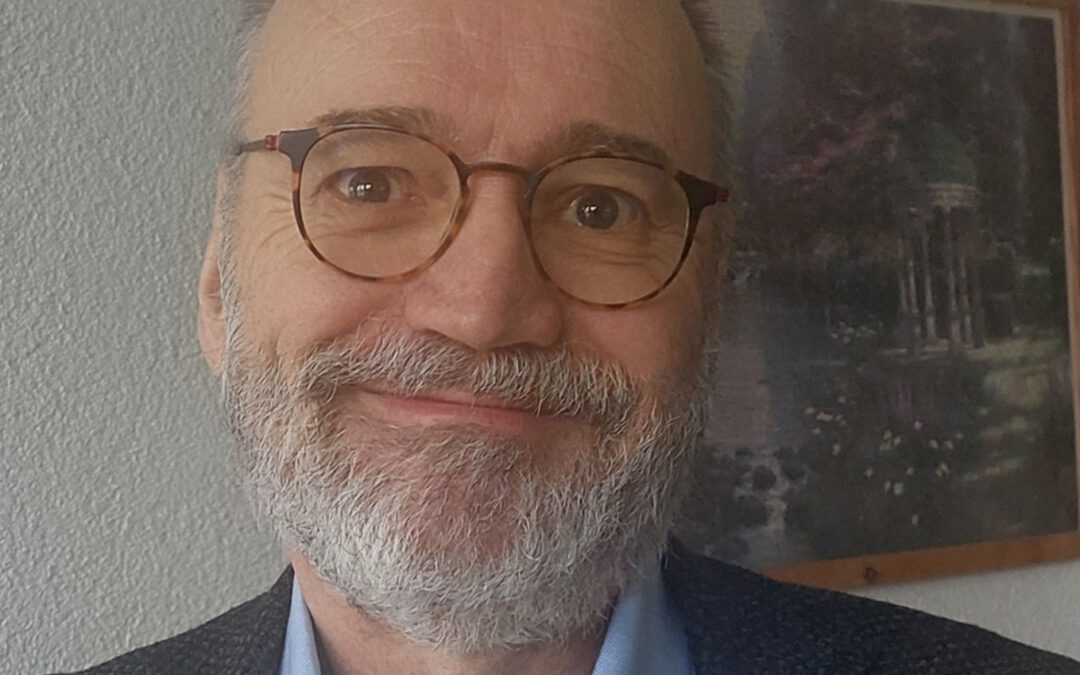Der Siegener Theologieprofessor Georg Plasger wurde 2018 in Basel – auf Vorschlag des Reformierten Bundes in Deutschland – in den Rat der GEKE gewählt. Hier zeichnete er sich durch sein scharfes analytisches Denken und durch klares theologisches Profil aus.
Zum Ende der Ratsperiode resümiert er, was diese Zeit für ihn persönlich bedeutet hat.
„Die sechs Jahre im Rat der GEKE waren spannend. Sie waren insofern spannend, weil viel Neues und neue Horizonte auftauchten. Es war eine Arbeit mit Menschen aus verschiedenen Teilen Europas, Menschen mit sehr unterschiedlichen Traditionen und Kontexten. Diese Kontexte haben sie in unsere Gesprächsrunden eingebracht. Von daher habe ich viel gelernt: von anderen Menschen, aus Texten, von Rezeptionen, die in sehr unterschiedlicher Weise herausforderten.
Es dauerte allerdings am Anfang ein Weilchen, bis ich in die Arbeit hereinkam. Man merkte, dass Menschen da waren, die viel ökumenische Erfahrung hatten und die in Prozessen zu Hause waren, in denen ich es nicht war. Von daher hat es am Anfang doch ein Bisschen gedauert, bis ich hineingekommen bin. Dann gab es die Pandemie, die dazu geführt hat, dass viele Prozesse nicht in echter Begegnung stattfanden, sondern nur vor dem Bildschirm. Das war besser als nichts, aber doch eine Krücke.
Und jetzt am Ende der sechs Jahre muss ich sagen, dass ich für diese Zeit, die ich im Rat sein durfte, sehr dankbar bin. Ich hoffe, dass diese Zeit auch insgesamt gesehen, den Kirchen geholfen hat, ihr Miteinander zu stärken.“ [Tonaufnahme 24.2024]
_____________________________________________________________________________
Siegen theology professor Georg Plasger was elected to the CPCE Council in Basel in 2018 at the suggestion of the Reformed Alliance in Germany. Here he distinguished himself through his sharp analytical thinking and clear theological profile.
At the end of the Council term, he summarises what this time has meant to him personally.
“The six years on the CPCE Council were exciting. They were exciting in that many new things and new horizons emerged. It was work with people from different parts of Europe, people with very different traditions and contexts. They brought these contexts into our dialogues. As a result, I learnt a lot; from other people, from texts, from receptions that are in very different ways challenging.
However, it took me a while to get into the work at the beginning. You realised that there were people there who had a lot of ecumenical experience and who were at home in processes that I was not. That’s why it took me a little while to get into it at the beginning. Then there was the pandemic, which meant that many processes didn’t take place in real encounters, but only in front of a screen. That was better than nothing, but it was still a crutch.
And now, at the end of six years, I have to say that I am very grateful for the time I was able to be on the Council. I hope that this time has also helped the churches as a whole to strengthen their communion.” [Audio Recordings 24.2024]
